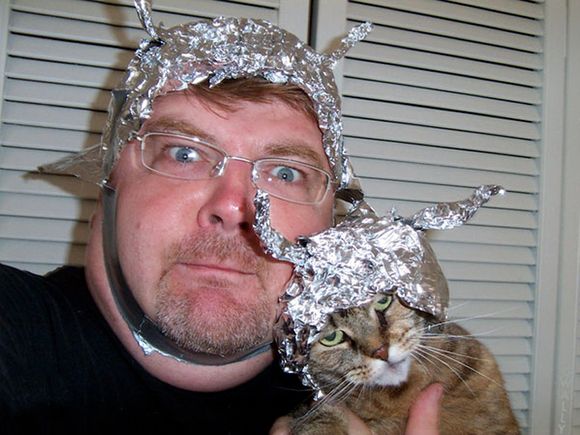Author: Rositsa Tashkova, Master of Molecular Biology and Microbiology
If you're an anti-vaccer, you're afraid you'll be chipped through a vaccine or you think the 5G network is spreading coronavirus, this article probably isn't for you.
In the following lines, we will look at the ways to find out who is on our side and who is in the enemy army in this battle scene - how to distinguish fake news and claims from the truth. This principle is essential for the team behind the patient platform Sanatio and the science-focused search engine BioSeek. We aim to meet people's need for reliable information on the topic of health, which is unfortunately also the most attacked by the creators of conspiracy theories.
1. Shocking headlines or what is "clickbait"
The first signal that something is wrong with an article shared on social media, for example, is its title, sometimes accompanied by a picture that aims to evoke strong emotion or curiosity.
Titles that contain shocking, disturbing or "revolutionary" claims- as well as promises of a magical cure for a severe disease - are a technique that has been given the name clickbait or in a crude translation from English - "click bait."
Normally, the article we will come across in this case does not provide comprehensive or reliable information on the subject and does not have the purpose of providing anything of quality to readers. The purpose of such titles and articles is to increase the number of visits to the page so that site owners can receive money from online ads.
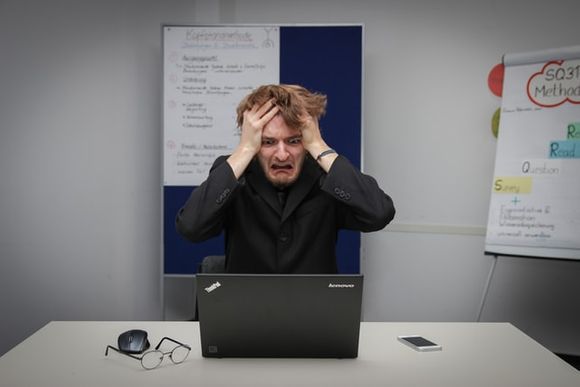
Photo by Sebastian Herrmann on Unsplash
Many social media users don't even bother to read the article - they just emotionally share it because of the headline, which essentially contains some kind of lie in it to provoke such a reaction and open the page by as many peopleas possible.
The spread of lies in this case is equal to the spread of a respiratory virus.
2. I saw the information in many places!
When somewhere on the Internet a "news" or statement appears, which attracts particular attention, other sites copy the text and in turn publish it in an effort to attract a larger audience.
This creates a sense of credibility in many places, but it is not a way to confirm that the news or the statement is true.

There have been instances where such false information has been broadcast even on national air, as journalists have not properly assessed its source and, in their quest to communicate the sensation first, have misrepresented both themselves and their audiences.
On the EU Against Disinformation website, we can search foreign and Bulgarian media by name to see if theyare on the list of spreading fake news. It should be considered that not all local media spreading fake news can be found in this search engine.
3. Do I really understand the used terminology
It is normal not to be specialists in everything - there is nothing shameful about this, and when we admit it to ourselves, the responsibility of an "expert" falls off our shoulders.
Few people would take their time to check the meaning of any unfamiliar word and accept what is said or written in confidence. "If the author uses such complex words, then he knows what she's talking about!" - it's self-delusion.
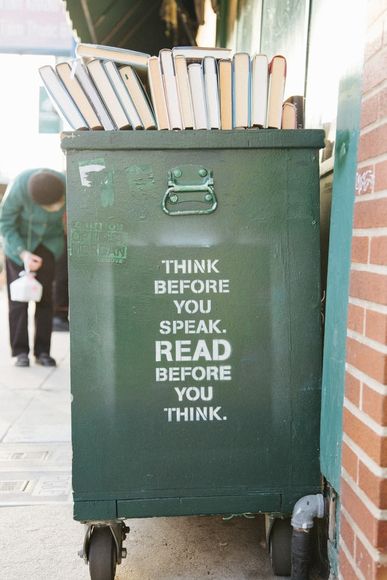
Photo by Kyle Glenn on Unsplash
The technique is used by all conspirators and charlatans and is extremely successful among non-specialists in the given field - usually it is about health, cells, genes...
We are only a click away from checking the exact meaning of a term - on Google, Wikipedia, and why not directly in MeSH?
4. The Psychological Traps We Fall Into Ourselves
In addition to the external attempts to manipulate our opinions, there are also several psychological traps in which we fall into. Two of the most well-known such traps are the confirmation bias and the Dunning-Krueger effect.
- The tendency to confirm is that often one is inclined to accept as truth only information that supports her or his opinions or beliefs already built on a subject. Thus, the search, understanding, interpretation and memorization of information turns out to be biased and does not bring awareness of the objective truth, but only to reinforce the already established attitudes of man. Let us not be fooled - we have all fallen into this trap.
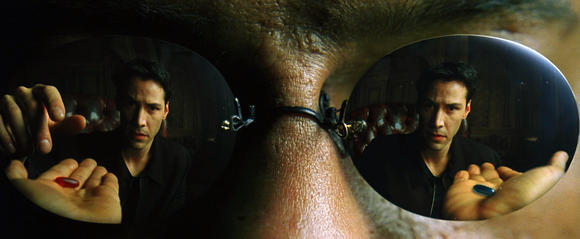
- The Dunning-Kruger effect is seen in a huge number of Facebook comments. People who are not qualified in a particular field mistakenly believe that they are and have incompetent opinions on complex issues that require the relevant specific knowledge.
- The assertion that 'everyone has a right to an opinion' also occupies a particular place among the traps of self-delusion and can be attributed to the Dunning-Kruger effect.
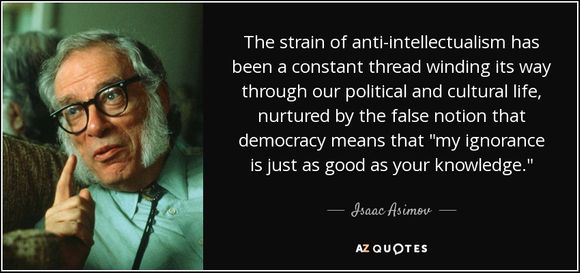
"The strain of anti-intellectualism has been a constant thread winding its way through our political and cultural life, nurtured by the false notion that democracy means that "my ignorance is just as good as your knowledge." Isaac Asimov
- Also, we should not forget that having "information" does not mean having "(more) knowledge" of something, since each of us interprets the information received according to our own abilities, building on previous knowledge or lack thereof – subjectively and often in a different context from that of the author of a text, for example.
5. "Scientists revealed..." - who are these scientists?
Often in the media space there are claims that "a scientist from Germany" or "scientists" have found or said something - but nowhere in the article does the name of the scientist or anyone on the team or in which institution she works, and even less often a link to the scientific publication on which the claimis allegedly based.
This is a vicious practice that reveals either the inability of the authors of such articles to correctly cite scientific information, or their reluctance to do so due to a lack of credibility.

Photo by Mohammad Hoseini Rad on Unsplash
Such a scientist is very likely not to exist at all, or the results of the study discussed are different from what is claimed in the article. When these results are not sensational enough, the media loses interest in them or modifies them beyond recognition, spreading lies.
6. How to find out if the scientist presented is indeed a scientist
One way to find out if a person posing as a scientist really is to search it at ResearchGate, a site that provides a detailed profile of scientists from around the world and their publications.
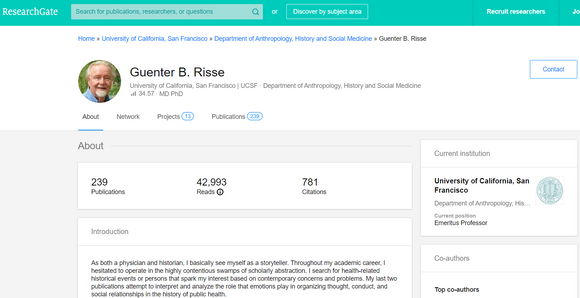
If we get into communication with someone pretending to be a scientist, it's a good sign that his email shows where he works - the researchers' work emails end with the domain of the institution where they work, for example, the email of a scientist at the University of California, San Francisco would look like this: name@ucsf.edu.
We can also search for his name directly on the institution'swebsite , which he is alleged to represent.
These methods will only show us whether man is indeed a scientist, but not his contribution and authority. For them, we can judge by the number of citations (how many times other scholars have quoted his articles) or on two indexes: h-index and i10-index. This information will be reached if we search for teachings by name (in Latin) in Google Scholar.
7. Someone pretends to be a doctor - should we fully trust
The above also applies to people who impersonate doctors on Facebook, for example, or have given an interview for a random site - we can check if such a person exists among the staff of the particular hospital. The doctor can also be contacted by name and on the Bulgarian medical union website.
It is good to keep in mind that a doctor who is a specialist in one field is not necessarily competent in another.
Therefore, it is important to realize that if a doctor expresses a strongopinion ona topic from an area in which he has not specialized, even if thisopinion coincides with ours, it is not necessarily true.

Photo by National Cancer Institute on Unsplash
With this, I am not intended to discredit or diminish the knowledge of medical professionals, but to draw attention to the fact that we are all human and we may be wrong.
It is important to keep in mind that today many people impersonate medical professionals, but their activity practically does not exist in the list of medical specialties and in general there is no scientific evidence of the effectiveness of the therapies they offer.
8. Professional trolls - there is also such a profession
It is well known that there is a particular group of people on the internet who make a living by writing comments that serve someone's (often political)interests.
The goal of their employers is to plant a certain attitude "from within" in society - to give the impression that many people think in a certain way, which changes the opinion of the average reader and directs emotions, his reasoning and actions in the desired direction.
9. Words that make "our light light on"
A favorite technique of the disinformators is to use scientific terms in a totally wrong way, provoking laughter among specialists and admiration in those who first encountersuch terminology.
Texts that mix esoteric and spiritual concepts with scientific ones, Among the commonly used words and expressions in these texts are quantum rectifier or quantum *whatever*, energy balance, chakras,karma, acidic or alkaline environment in the body (a constant pH level of about 7.4 is maintained in the body - any deviation from these values leads to a severe condition that requires medical intervention and is not corrected with a diet), quadrants, etc.
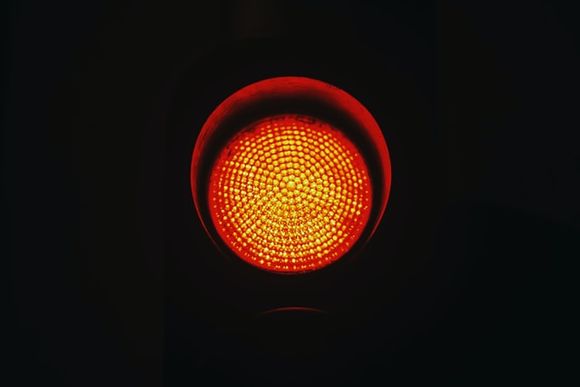
Photo by Erwan Hesry on Unsplash
10. Fact-checking sites
There are several fact-checking websites. The websites do not serve political interests in detail.
- FactCheck.org - created by the Annenberg Center for Public Policy at the University of Pennsylvania in 2003 - objectively explores political statements in the form of fairly long articles.
- Factcheck.org's Viral Spiral - an initiative to quickly debunk internet rumors.
- Snopes - this site explores the city legends of 1994.
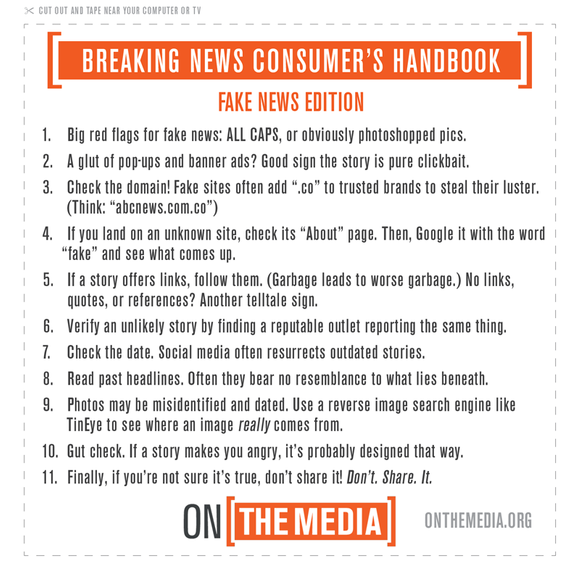
11 simple steps to recognize fake news
11. How to navigate scientific articles
For many people who have not engaged in science or completed a specialty that required the use of scientific articles, it remains unclear exactly what they are.
Trying to convince me of the correctness of a conspiracy theory, and after asking them to provide me with a scientific publication proving their claims,I received a simple article on a site of dubious origin and author in response , in which it is claimed that a person by some name was a scientistand allegedly said one thing or another in support of thetheory.
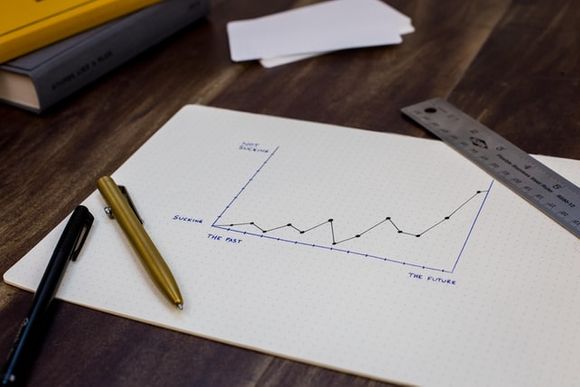
Photo by Isaac Smith on Unsplash
True scientific publications have several mandatory attributes: abstract (briefdescription of the content of the article); the names of all authors and institutionsin which theywork; introduction; a description of the materials and methods used in the study; results; discussion; conclusion; references (other scientific articles to which the authors have referred).
Moreover, if the article is indeed published in a scientific journal, it will in most cases possess a DOI - a unique identification number, often in the form of a link that takes us to the source on the website of the magazine where the article in the original article was published.
If the DOI number is not a link, we can copy it and put it in the search engine on the https://www.doi.org/ and it will direct us to the source.
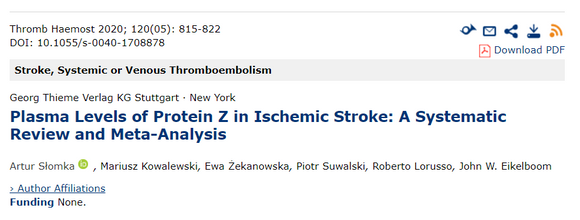
The "reputation" of the scientific journal where the article was published is also relevant - the so-called "impact factor" is an indicator of this. It is used to measure the importance of the magazine by calculating the number of citations of selected articles over the past few years.
For example, in the field of medicine among the magazines with the highest rating are: New England Journal of Medicine (NEJM),The Lancet, The British Medical Journal (BMJ), Annals of Internal Medicine, The Journal of the American Medical Association (JAMA).
And here you can see a ranking of the 10 most prestigious scientific journals for microbiology.
Different universities and institutes also have different contributions and authority, for example, there is a difference whether a study is published by the Robert Koch Institute or djibouti University.
12. What is a pre-print or article in the prepress stage
In order to be published in a scientific journal and accepted for scientific publication, an article needs to be reviewed and approved by independent scientists, experts in the field. They check the validity of the methods described, the statistical analysis, the results - everything is thoroughly considered. More reputable journals also have stricterrequirements to ensure the credibility of theclaims in the submitted material.
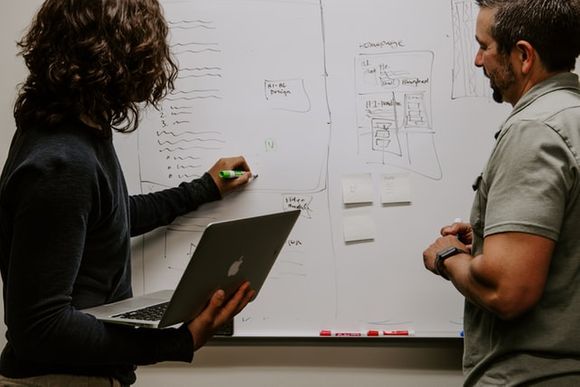
Photo by Kaleidico on Unsplash
Before going through this process, the article can be published on a network of sites with the common name arXiv (https://arxiv.org/ ) orelsewhere, but it will be marked as pre-print.
13. Where to look for scientific articles
There are well-establishedwebsites that bring together a huge number of scientific publications (sometimes only those from a givenarea).
Such examples are ResearchGate, NCBI and BioSeek (for articles in the field of medicine, biology, genetics), PLOS ONE, ScienceDirect (in addition to scientific articles, chapters of 20,000 books are also included here).
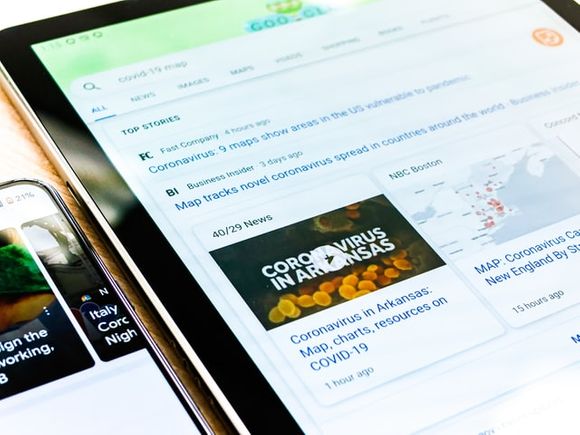
Photo by Obi Onyeador on Unsplash
Unfortunately, they are all available only in English. The exception is BioSeek,which is a Bulgarian product and provides the opportunity to translate into Bulgarian and other languages.
We can also trust the information provided by the sites of the established institutions (WHO,NIH, CDC),universities, scientific institutes,where the answers to many questions on which there is scientific consensus are given.
14. What is a clinical trial or how medicines are made
When information emerges that a substance "kills cancer", for example, but with closer examination of the facts we find that it has shown an effect in vitro,that is. in laboratory conditions on cells,such news should be viewed with a healthy dose of skepticism.
The results observed in cells are far from guaranteed by the incomparably more complex whole human organism , in which countless processes takeplace.
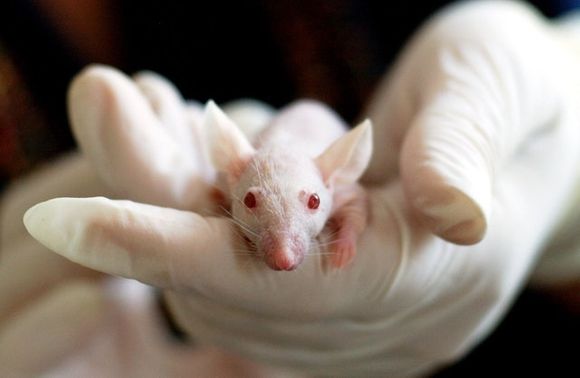
Therefore, successful in vitro studies have been carried out in whole organisms - rats, mice or other laboratoryanimals.
This is where clinical trialson humans - which initially start with small safety checkgroups and involve more and more volunteers in subsequent phases - are involved to assess not only the safety, side effects, but also the effectiveness of the potential drug.
When it is proven that the substance has the desired healing effect and is safe to use, it can reach the general clinical practice and the commercial network. At this stage, observations continue and if any irregularity is suspected, the medicine is immediately stopped from use.

Photo by Benedikt Geyer on Unsplash
On the other hand, in order to avoid this complex and expensive process, manufacturers of many substances or combinations thereof sell them in the form ofdietary supplements , and this poses significant dangers for people who resort to themfor treatment.
Creating one drug from the lab to the market takes an average of 12 years! The vast majority of the substances studied are dropped in this process until one is identified that really works and shows maximum safety.
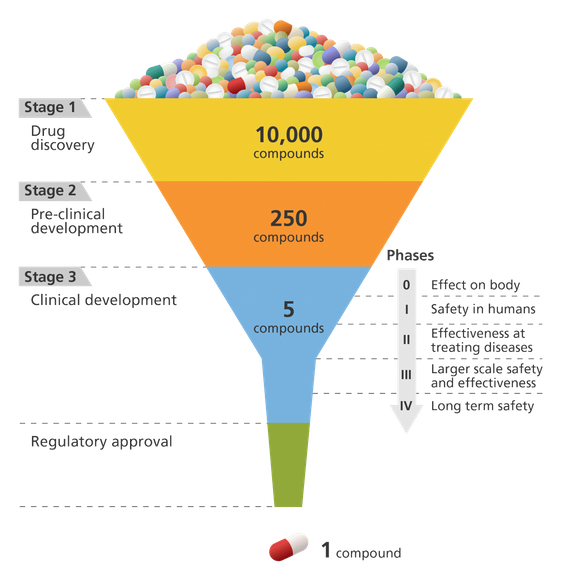
The "funnel" behind the development of a new drug. Credit: FDA
15. What is a randomised study
The best practice for conducting a clinical trial was randomisation.In the randomised trial, patients were randomly assigned to groups receiving different treatments. Inthe simplest version, the study group received the new treatment and the control group received standard therapy. At several points during and at the end of the clinical study, the researchers compared the groups to see which treatment was more effective or hadfewer side effects.
Randomization helps prevent bias and distortion of outcomes - when results are influenced by people's choices or other factors not related to the treatment under investigation.
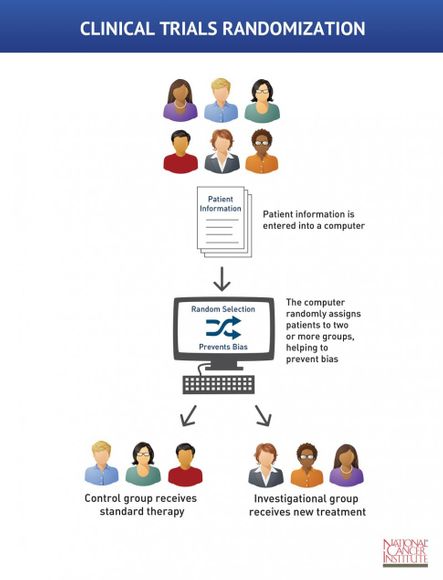
16. Do herbs have a place in the treatment of diseases
Nature is an inexhaustible source of substances for pharmacy - active substances are detected, extracted from plants and microorganisms (for example, some molds produce antibiotics) and are put into the necessary therapeutic concentrations in medications for the treatment or prevention of a variety of diseases.
Some of the medicinal plants have been known for a long time and the benefits of them have been established and proven. But the use of herbs without consultation and follow-up by adoctor, especially of little-known and exotic plants , can be dangerous . One of the organs that can suffer the most is the liver , as it tries to neutralize toxic substances found in our body - some plants and herbs have ahepatotoxic effect.
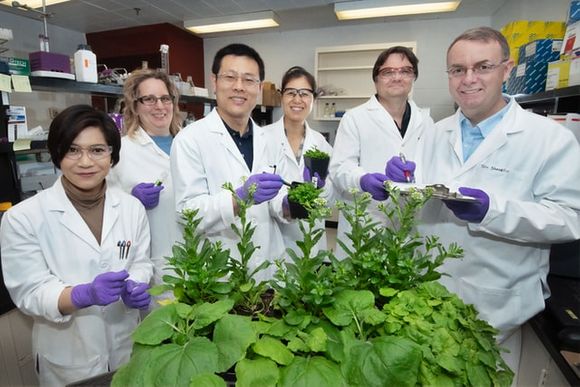
Photo by Science in HD on Unsplash
17. Critical Thinking
But "critical thinking" does not mean questioning already proven truths or seeking a hidden conspiracy in everything.
It is a mindset approach in which we apply common sense, without unnecessary emotions, building our opinion on whether or not a statement is true on the basis of true evidence.
Final reflections
In today's high-tech world, access to information from all spheres of knowledge is provided to anyone who owns a computer or phone with the Internet. This connectivity between people and the almost instantaneous dissemination of facts, thoughts and reasoning is a coin with two sides . Words only matter in a person's mind - each of us makes sense of and interprets the information received in its own way, which depends on its knowledge, experience and ability to think critically.
And unfortunately, it is the emotions that all attempts to manipulate public opinion on various issues rely on, as well as the creators of conspiracy theories thatmore than ever threaten even our health and lives.
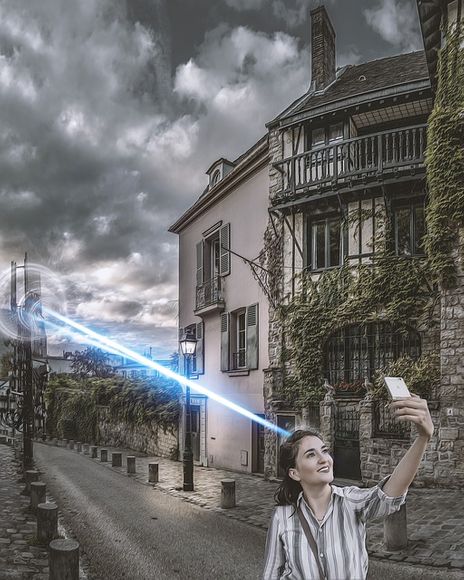
No, we are certainly not suggesting that we will be forcibly chipping through a vaccine against the coronavirus, or that our minds will be controlled by the 5G network of shadow rulers.
Everyone wants to be informed, to know the truth, not to be lied to and to suffer, and at the same time today the lie is constantly confused with truth and determines the actions of millions of people around the world - a real pandemic of misinformation.
We thank our sponsors: Bill Gates, Big Pharma, Freemasons, Jews and 5G antenna manufacturers. Without you, this article would not have been a fact! :)
